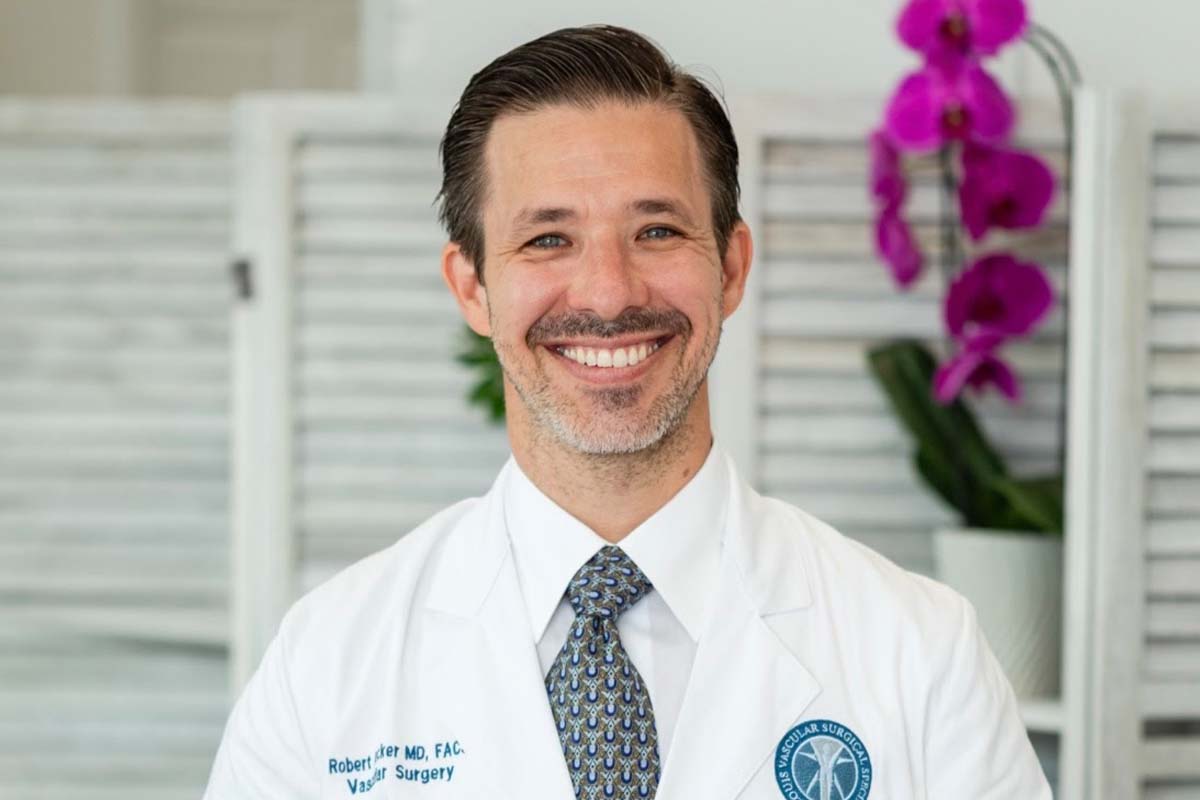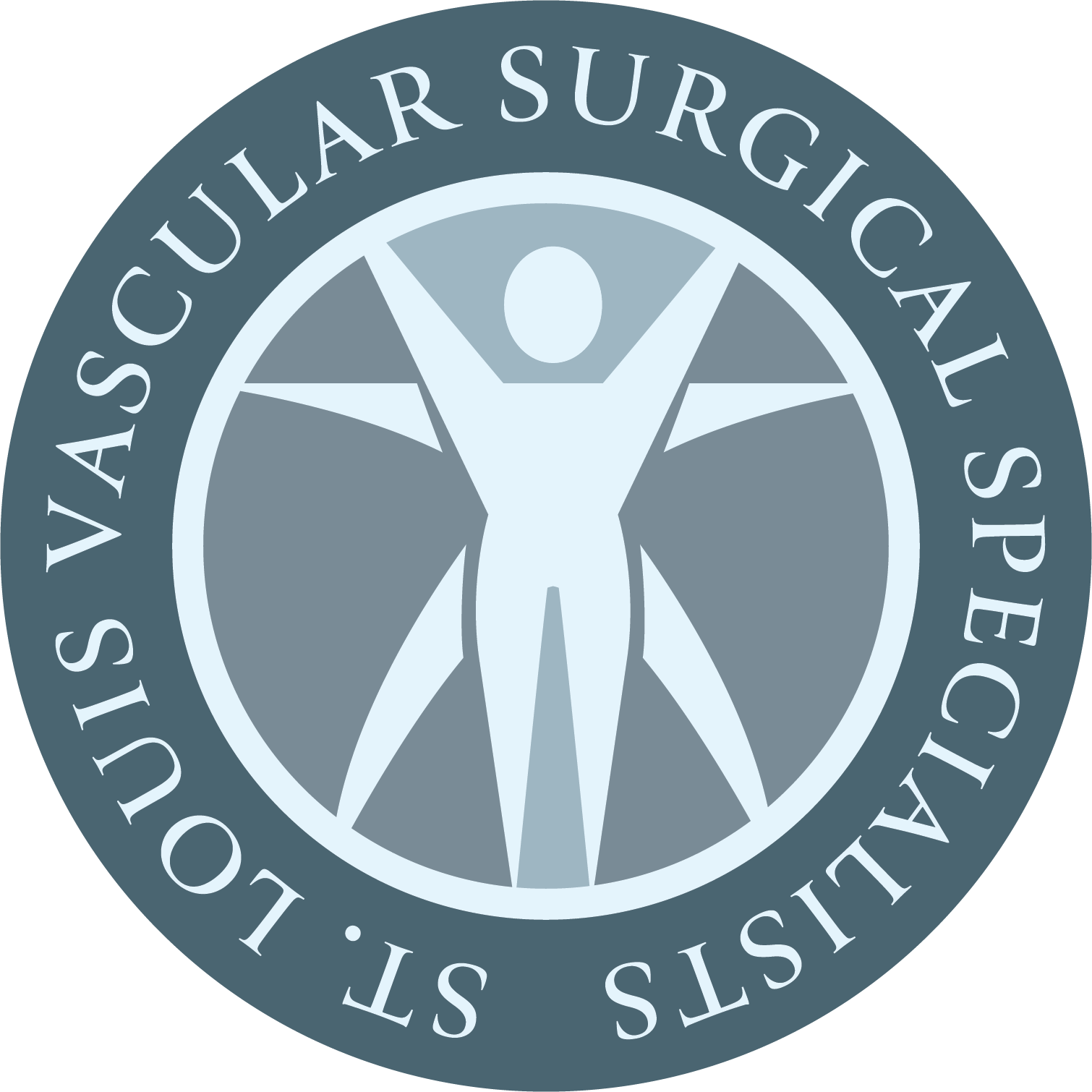Wounds demand meticulous care to promote healing and prevent complications. At St. Louis Vascular Surgical Specialists, under the guidance of esteemed board-certified surgeon Dr. Hacker, we offer comprehensive wound management services and wound healing in St. Louis. From acute injuries to chronic wounds, we offer personalized solutions to help you heal and avoid complications.
Complex wounds: an overview
Wound healing typically occurs in four stages: hemostasis, inflammation, proliferation, and remodeling. During hemostasis, blood vessels constrict to minimize bleeding, and platelets form clots to seal the wound. Subsequently, the inflammatory phase involves immune cells clearing debris and initiating tissue repair. Next, proliferation sees the formation of new blood vessels and the growth of granulation tissue to fill the wound gap. Finally, remodeling occurs as collagen fibers reorganize, strengthening the healed tissue.
However, certain factors can disrupt this progression, leading to complex wounds. These wounds often result from underlying medical conditions like diabetes, vascular disease, or immune disorders, impairing the body’s ability to heal properly. Additionally, factors such as infection, poor circulation, and repeated trauma can complicate the healing process, resulting in non-healing wounds. These complex wounds demand specialized attention and treatment strategies to facilitate healing and prevent complications and infections. Contact us for tailored treatment and advanced strategies for complex wound care in St. Louis.

Potential symptoms of complex wounds:
- Persistent pain or discomfort at the wound site
- Delayed or stalled healing despite appropriate treatment
- Increased redness, warmth, or swelling around the wound
- Foul-smelling drainage or pus from the wound
- Development of necrotic tissue (black or brown in color)
- Formation of sinus tracts or tunnels beneath the skin surface
- Recurrent infections or wound breakdown
- Difficulty controlling blood sugar levels in diabetic patients
- Decreased sensation or numbness in the surrounding area
- Visible signs of underlying vascular or immune system disorders
- Compromised mobility or functionality due to wound location or severity
Comprehensive Wound Care Treatments at SLVSS
St. Louis Vascular Surgical Specialists (SLVSS) offers advanced wound care tailored to each patient’s needs. Our treatments include wound debridement, advanced dressings, skin grafting, and compression therapy to optimize healing. We also utilize cutting-edge therapies such as negative pressure wound therapy (NPWT) and hyperbaric oxygen therapy (HBOT) to promote tissue regeneration, improve blood flow, and reduce infection risks. At SLVSS, Dr. Hacker offers comprehensive consultations and ensures effective care for even the most complex wounds, helping patients achieve faster recovery and improved quality of life.

What are some of the most common types of complex wounds?
- Diabetic Wounds: Diabetic wounds, often occurring on the feet or lower extremities, result from impaired circulation and neuropathy associated with diabetes. Diabetic wounds are complex wounds, prone to infection and slow healing, increasing the risk of ulcers and gangrene.
- Venous Wounds: Venous wounds, also known as venous ulcers or stasis ulcers, typically develop on the lower legs due to venous insufficiency. Venous wounds often present as shallow, irregularly shaped ulcers with surrounding edema.
- Arterial Wounds: Arterial wounds stem from compromised blood flow caused by arterial disease, such as atherosclerosis or peripheral artery disease (PAD). Arterial wounds typically occur on the feet or lower legs and present as deep, painful ulcers with well-defined borders.
- Pressure Injuries: Pressure injuries develop when prolonged pressure or friction damages the skin and underlying tissue, typically over bony prominences. Pressure injuries are particularly common in individuals with limited mobility, such as elderly or bedridden patients.
FAQs
Is wound care covered by insurance?
Yes, most wound care services are covered by major health insurance providers. Coverage typically includes diagnostic tests, wound debridement, dressings, and advanced treatments like compression therapy. However, coverage can vary depending on your plan, the nature of the wound, and the type of treatment required. The team at St. Louis Vascular Surgical Specialists will work with your insurance provider and help verify your benefits before starting treatment.
When should I go to the ER for wound care?
You should seek emergency care if your wound is bleeding heavily and doesn’t stop after applying pressure for 10 minutes, if bone or muscle is visible, or if the wound is large, deep, or caused by a severe burn. Also, go to the ER if there are signs of a serious infection, such as red streaks, fever, pus, or worsening pain and swelling. For chronic or non-healing wounds, schedule a consultation with a specialist in vascular care.
What are the four C’s of wound care?
The four C’s are essential principles that guide comprehensive wound management:
- Cleaning: Gently removing debris, dead tissue, and bacteria from the wound using sterile solutions to reduce infection risk and prepare the area for healing.
- Controlling infection: Using topical or systemic antibiotics, antimicrobial dressings, or debridement to manage bacterial growth and prevent complications.
- Circulation: Ensuring proper blood flow to the wound site, especially important in patients with diabetes or vascular disease, to deliver oxygen and nutrients necessary for healing.
- Closure: Promoting wound closure through methods like advanced dressings, compression therapy, skin grafting, or surgical intervention, depending on the wound’s severity and type.
How should I care for my wound?
Wound care begins with gentle cleaning using sterile saline or a mild soap and water, followed by the application of a clean, dry dressing. Avoid picking at scabs and watch for signs of infection. Follow your vascular specialist’s instructions precisely, especially if compression therapy or advanced dressings are prescribed.
Personalized wound care treatment in St. Louis for non-healing woulds
At SVSS, we understand that non-healing wounds require personalized care. Led by Dr. Hacker, our team is dedicated to providing comprehensive wound care in St. Louis to promote healing and restore function. When you come to us with an acute wound, burn, or concern for limb preservation, Dr. Hacker will meet with you to conduct a thorough evaluation.
Dr. Hacker will administer cutting-edge diagnostic tests to assess blood flow, tissue viability, and any underlying conditions that prevent the wound from healing. Following evaluation, Dr. Hacker will collaborate with you to develop a treatment plan aimed at addressing the factors hindering wound healing. Whether it involves advanced wound care techniques, wound debridement, surgical interventions, or adjunct therapies, your treatment plan will be tailored to optimize healing.


Schedule your would healing consultation with Dr. Hacker
St. Louis Vascular Surgical Specialists, led by Dr. Robert Hacker, offers unparalleled expertise in wound care. As a double board-certified surgeon with numerous academic publications, Dr. Hacker has the keen skills, experience, and insight needed to successfully identify and treat the root cause of your complex wounds. Furthermore, Dr. Hacker offers personalized attention to each patient, ensuring they feel less like a patient and more like an extended member of the family. Please schedule your consultation today to explore your options for wound care in St. Louis.
Schedule a
Consultation
At St. Louis Vascular Surgical Specialists, we are committed to providing accessible, high-quality care. We accept most major insurance plans to help meet your healthcare needs. For questions about coverage or to verify your insurance, please contact our office today.
